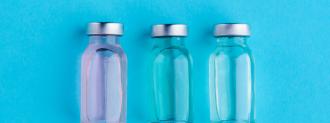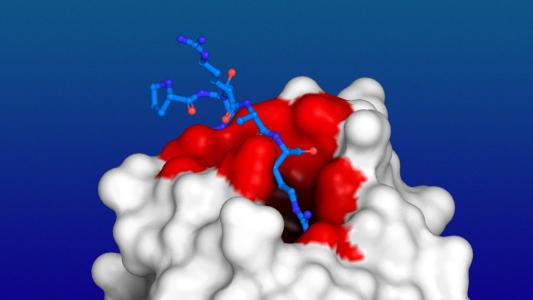More than 320 coronavirus vaccines are currently in development, and on the one hand, that’s great news — the more vaccine candidates, the greater our chances of finding one that’s effective.
On the other, the fact that this development is happening at different labs and in different studies all across the globe makes it really hard to accurately compare COVID-19 vaccines.
“When you start off (with developing potential new vaccines) especially with a new disease, everyone develops their own assays, they all use different protocols and different reagents,” Melanie Saville, director of vaccine R&D at the Coalition for Epidemic Preparedness Innovations (CEPI), told Reuters.
It will give us a chance to really make sure we are comparing apples with apples.
Melanie Saville
That means two labs could test the same sample from a person given a COVID-19 vaccine and get two sets of results — they might come to two different conclusions about the level of antibodies in the sample, for example.
Saville compares this to asking several chefs to make the same dish — because they might buy ingredients at different stores or opt for different brands, the finished meals won’t be exactly the same.
That variability makes it hard to compare COVID-19 vaccines accurately, which, in turn, makes it hard to know for sure which vaccine is most deserving of funding — and the cost of developing a vaccine can range from $150 million to more than a billion dollars.
In an effort to eliminate this issue, CEPI has organized a network of seven labs that will study samples of people or animals given COVID-19 vaccines, using the exact same techniques. This uniformity will make it easier to compare COVID-19 vaccines, according to Saville.
“It will give us a chance to really make sure we are comparing apples with apples,” she explained.
CEPI is inviting all COVID-19 vaccine developers to take advantage of its network, a process that starts with the completion of a sample analysis request form. Someone from CEPI will then contact the developer with details on how to ship their vaccine samples to the closest CEPI lab.
The lab will then conduct a number of tests to see what kind of immune response the vaccine elicited — the tests will be conducted in exactly the same way, using the exact same equipment, regardless of which lab receives the sample.
The CEPI lab will then send the vaccine’s developer an analytical report on its performance, as well as the raw data from the testing — data that will be invaluable to efforts to compare COVID-19 vaccines.
Researchers working on several candidates could send in samples for each, and then look at CEPI’s report to determine which deserves further development.
Governments and other organizations could also request the reports from researchers as they try to determine which of the many vaccines is most worthy of funding — armed with the CEPI reports, we’ll be able to compare COVID-19 vaccines more effectively than if we were relying on different data from various labs.
To make the project as accessible as possible, CEPI is even covering the cost of testing — the developer will only be responsible for the cost of shipping. Initially, CEPI will only test samples from earlier trial stages, but it hopes to expand the project to include samples from Phase 3 trials in the coming months.
We’d love to hear from you! If you have a comment about this article or if you have a tip for a future Freethink story, please email us at tips@freethink.com.






